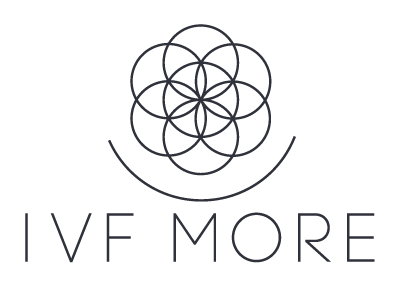Top 6 Signs of Good Egg Quality
July 2025

When it comes to fertility, egg quality plays a crucial role in the success of conception, embryo development, and ultimately, a healthy pregnancy. For many individuals and couples exploring assisted reproductive technology (ART), understanding the signs of good egg quality can offer clarity, hope, and direction.
In this blog, we’ll break down what defines a good-quality egg, explore the top signs to look for, and explain how advanced IVF techniques like IVF MORE® can improve egg health for those struggling with infertility.
Why Egg Quality Matters
Egg quality refers to the egg’s ability to mature properly, fertilize successfully, and develop into a healthy embryo. High-quality eggs have the right number of chromosomes and sufficient energy reserves to support embryo development.
As women age, especially after 35, the quality of their eggs typically begins to decline. Conditions like endometriosis, Polycystic Ovary Syndrome (PCOS), or repeated failed IVF cycles can also impact egg quality.
This is why evaluating the signs of good egg quality is an essential part of any fertility journey, whether you’re pursuing traditional IVF, considering IVF egg donors, or exploring cutting-edge methods like IVF MORE®.
1. Regular Menstrual Cycles
A regular cycle (typically 25–35 days) is often a good indicator that your body is ovulating predictably. Ovulation is essential for releasing mature eggs. While it’s not a direct measurement of egg quality, a consistent cycle suggests a healthy hormonal balance, which is crucial for proper egg maturation.
2. Hormonal Balance (Especially FSH and AMH Levels)
Follicle Stimulating Hormone (FSH) and Anti-Müllerian Hormone (AMH) levels offer insight into ovarian reserve and egg quality.
- FSH levels below 10 mIU/mL (on day 3 of your cycle) are often associated with better egg quality.
- AMH levels between 1.0 and 4.0 ng/mL suggest a healthy ovarian reserve and better potential for producing quality eggs.
Although these numbers don’t tell the whole story, they are a starting point for understanding reproductive health.
3. High-Quality Embryos in IVF Cycles
One of the most reliable signs of good egg quality is the development of high-quality embryos during an IVF cycle. Embryos that reach the blastocyst stage (day 5–6 of development) and have strong cell division and structure are usually formed from healthier eggs.
Clinics often assess embryo grading based on factors like cell symmetry and fragmentation. Good-quality eggs are more likely to produce embryos with high implantation potential
4. Healthy Lifestyle Indicators
Your overall health reflects on your fertility. Factors like a healthy BMI, non-smoking status, balanced nutrition, and regular exercise all contribute to egg health. A well-nourished body can better support hormonal balance and mitochondrial function—two core elements of egg quality.
Conversely, oxidative stress, exposure to environmental toxins, and chronic stress can negatively impact egg quality. Simple lifestyle improvements can go a long way in boosting fertility potential.
5. Mitochondrial Function and Energy Production
Eggs require energy to undergo cell division and embryo development. This energy is produced by mitochondria—tiny “powerhouses” inside the cell.
As eggs age, their mitochondria can become less efficient, leading to poor-quality embryos or failed fertilization. Advanced IVF labs can now assess this mitochondrial activity as part of an egg’s metabolic profile, revealing deeper insights into its viability.
6. Low Rates of Chromosomal Abnormalities
Chromosomal integrity is a non-negotiable factor in determining whether an egg is “high quality.” Eggs with incorrect chromosome numbers are more likely to lead to miscarriage, failed implantation, or conditions like Down syndrome.
Preimplantation Genetic Testing for Aneuploidy (PGT-A) can identify these abnormalities before embryo transfer. If your embryos consistently test normal with PGT-A, it’s a strong sign that your eggs have good genetic quality.
How IVF MORE® Improves Egg Quality
For patients who struggle with poor egg quality, IVF MORE® offers a scientifically advanced approach. Developed in collaboration with leading stem cell and embryology specialists, IVF MORE® targets the metabolic and structural weaknesses in aging or compromised eggs.
Here’s how it works:
- Metabolic Diagnosis: Each egg undergoes a molecular evaluation to assess its energy levels and mitochondrial health.
- Cellular Restoration: Using regenerative techniques, metabolite-rich cytoplasm and granulosa cell factors are infused into the egg to restore its energy.
- Cytoskeletal Realignment: The egg’s internal scaffolding, responsible for chromosome division, is stabilized to reduce the risk of genetic errors.
- Magnetic Field Culturing: Embryos are cultured in a special environment using magnetic fields to enhance division and reduce oxidative stress.
By restoring the cellular machinery of the egg, IVF MORE® increases the chances of producing viable embryos—even in patients who have failed traditional IVF treatments or been told they need eggs donation.
This means patients can move forward using their own eggs, reducing the emotional and financial challenges often associated with egg donors or third-party reproduction.
Why You Should Pay Attention to Egg Quality Early On
While there’s no single test to evaluate egg quality directly (except during IVF), tracking key indicators and seeking early assessment can help you make informed decisions about your fertility timeline.
Whether you’re considering freezing your eggs, undergoing the egg donation process, or starting your first round of IVF, understanding the signs of good egg quality gives you a proactive edge.
Are You a Candidate for IVF MORE®?
You may be an ideal candidate for IVF MORE® if you’ve experienced:
- Poor-quality embryos in past IVF cycles
- Chromosomal abnormalities in embryos (confirmed by PGT-A)
- Low mitochondrial activity or ATP production in eggs
- Recurrent pregnancy loss due to chromosomal errors
- Diagnosis of endometriosis, PCOS, or advanced maternal age
Unlike standard IVF technique options, IVF MORE® works at the cellular level to restore your own eggs before fertilization, offering renewed hope for success.
Final Thoughts
Recognizing the signs of good egg quality is a vital step in planning for a successful pregnancy. While age, genetics, and health history all play a role, today’s technology offers powerful tools to assess and improve fertility.
IVF MORE® is at the forefront of reproductive science—designed not just to work around poor egg quality but to restore it. If you’ve struggled with infertility or been told your only option is donor eggs, this technique may offer the alternative you’ve been hoping for. Would you like to know if IVF MORE® is right for you? Schedule a personalized consultation and take the first step toward renewed hope.
